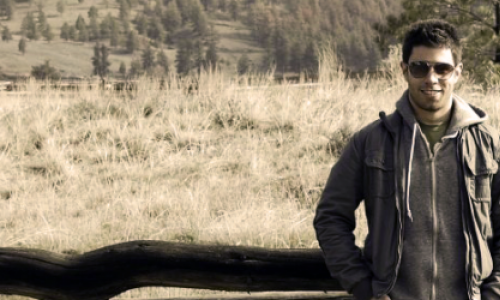
One of the most memorable parts of my time in co-op was the collection of accidents, errors, mistakes, and mix-ups that happened in the course of working in the laboratory. It is a part of working – and living – that each of us must face: to err is human. I have come to understand through these experiences that even when we mess up, our success is not determined by the fact that we messed up, but by how we have acted in those instances that test our character. What counts is not what we did, but how we did it.
We err daily in our decisions and actions; accidents can even happen by pure chance. This is a fact of life, whether one formulates this as a law of finite probabilities (that anything with a finite probability will eventually occur, given enough time), as entropy (that disorder in isolated systems tends to increase), or just as Murphy’s Law (that if anything can possibly go wrong, it will). I discovered the full reality of this in the course of my co-op and lab experiences.
There have been many incidents over the course of my co-op experiences: a broken furnace element, a melted hotplate, a piece of metal cold-welded onto a steel press, and buckets of broken glassware to name a few. Some were simple accidents, like dropping beakers and flasks, and some were errors in judgement, but many were just unexplainable incidents of things going wrong. But in all cases, experience has shown me that it’s best to confess what happened.
The most terrifying experience for me involved an accident during my second co-op term. On a cold and dry winter day I was preparing to test a sample in the NMR spectrometer, an essential and very expensive tool. While placing my sample, I experienced a static shock and dropped a reference sample into the machine where it became lodged. There was nothing that I could do to fix it. I thought that I was dead meat.
I promptly told my supervisor and the technician what had happened. The machine was unusable for two days – to the consternation of many - while a specialist came to dislodge my sample. In that time a number of researchers there were quietly cursing my name under their breath and behind my back. Still, the NMR technician and my supervisor both thanked me for informing them.
Much to my relief, my boss and my supervisor did not consider firing me, but instead were simply appreciative of my willingness to take responsibility. At the end of the term, I received the company’s Thank You Award for hard work and effort. My boss, who had until then been known for never having nominated one of his co-op students to receive one, had nominated me.
Employers appreciate honest employees, and especially so when they are willing to take responsibility for their mistakes. Indeed, it’s to their advantage to have employees willing to be honest. Mistakes, when covered up, can be very costly. But for an employee to be willing to go to their boss to alert them to an error that they made requires that they trust their boss and know that they will be shown forgiveness. In the era of The Apprentice, where “Under-performance demands capital punishment. You screw up, you're gone,” this may seem unrealistic.
Thankfully, many companies do not take Mr. Trump’s view. As Michael Zigarelli, dean of the Regent School of Business points out, many companies take the “enlightened view [which] entails management by humility and servanthood, not by fear and intimidation. It prefers people to profits, relationship to rivalry, grace to greed, and often—newsflash, Mr. Trump—forgiveness to firing.”[1]
Such attitudes and actions create loyalty in employees, and for me, a greater trust and appreciation of my bosses. For bosses who show such grace I have found myself working harder and being more eager to please them because I trust them. While it is a personal risk to take responsibility for a mistake or accident, we show our true character when we do, as do our employers in their response. As Alexander Pope wrote, “To Err is Human, to Forgive, Divine.”[2] A job may only last for a short time, but the knowledge of whether you succeeded by doing the right thing will last into eternity. That’s a real measure of success.














